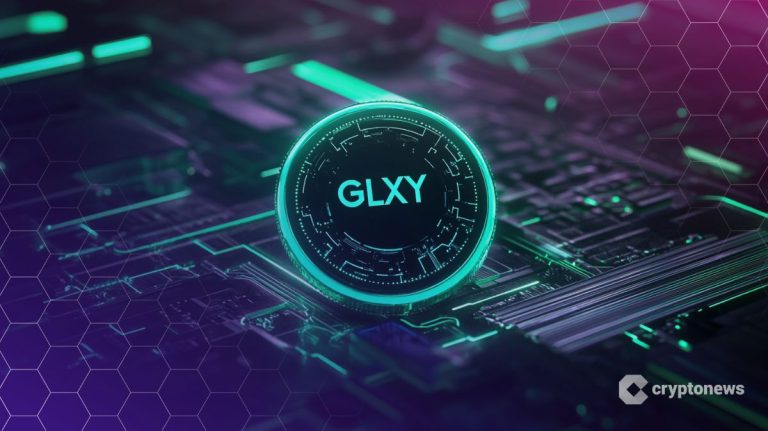
The United States is quickly becoming a home base for blockchain and crypto companies that were previously based outside the region.
Recent data from Crunchbase shows that over 5000 blockchain companies are currently located in the U.S. Yet this number is expected to grow, as the Trump administration seeks to position the U.S. as a global hub for digital assets.
This appears to be the case, as SEC Chair Paul Atkins called on the U.S. to “reshore the crypto businesses that fled.” Atkins mentioned this during a speech given at the America First Policy Institute on July 31.
Following this, U.S. Treasury Secretary Scott Bessent stated on X that the U.S. has entered the “golden age of crypto” and issued a direct call to builders to “Start your companies here. Launch your protocols here. And hire your workers here.”
U.S. Paves Way for Global Crypto Companies
As clearer regulations take shape, along with growing institutional interest, global blockchain companies are beginning to set up operations in the U.S.
Nexo, a Bulgaria-based crypto lending and yield platform, recently announced its return to the U.S. market after a multi-year absence. A Nexo spokesperson told Cryptonews that earlier this year, Nexo hosted an exclusive event with Donald Trump Jr. to unveil the company’s upcoming return to the U.S. market in Q4 2025.
“The signal from US capital markets is unmistakable: institutional demand and clearer rules are well underway,” Nexo’s spokesperson said.
Alenka Shmalko, Director of Ecosystem Success at TON Foundation—the organization behind the TON blockchain that powers Telegram—further told Cryptonews that Ton Foundation will soon establish a U.S.-based hub.
The TON Foundation was established in 2023 and is based in Switzerland, yet Shmalko noted that crypto-friendly policies are driving development to the U.S.
Nexo’s spokesperson added that the U.S. remains a key region for distribution and standardization. “ETF rails, broker-dealer channels, card networks, and banking partners are predominantly U.S.-centric. When policy clarifies—as with stablecoins—product builders quickly align to those standards worldwide.”
Given this, Nexo believes that a U.S. presence for global blockchain companies is more about interoperating with institutional pipes under clear rules, so that products built for the region can become the global reference.
“A clear example of this is Brazil and Mexico using Circle’s stablecoin USDC,” they said.
“USDC is now directly connected to the countries’ national instant payment rails, PIX and SPEI, so businesses can move between BRL or MXN and dollar stablecoins through local banks in minutes rather than days.”
Blockchain Companies Move Back to the U.S.
In addition to Nexo and TON Foundation, Deribit, a Netherlands-based derivatives exchange, recently announced its entry into the U.S. market. Wintermute, a London-based algorithmic trading platform, also opened a New York office in May.
While global blockchain companies are entering the U.S. market, companies that left the region are also coming back.
Jennie Levin, chief legal and operating officer at the Algorand Foundation, told Cryptonews that layer-1 blockchain Algorand was launched in Boston, even though the Algorand Foundation is Singapore-based.
According to Levin, it has been a goal for the Algorand Foundation to return to the U.S. in a meaningful way.
“Today’s administration has reshaped how America views and supports the blockchain sector—moving from uncertainty to constructive, principle-based engagement. With that shift, the door is finally open,” she said.
Levin shared that the exact operational details surrounding the move are still undergoing legal, regulatory, and board review, but the Foundation intends to relocate soon.
She explained this is the case as, “No single market matches the United States for depth of capital, concentration of technical talent, or global regulatory influence, so leadership here remains decisive for blockchain’s worldwide trajectory.”
Echoing this, Timothy Enneking, CEO of decentralized search engine Presearch, told Cryptonews that Presearch moved its operations to the U.S. in 2023. The company was previously based in Canada, yet Enneking mentioned that “general stability” and availability of risk capital brought the company back to the U.S.
Other crypto companies, like OKX, a centralized exchange registered in Seychelles, relaunched their U.S. operations this year. The company established a new headquarters in San Jose, California, following a $500 million settlement with US regulators.
Challenges to Consider
While it’s clear that the U.S. is becoming a hub for blockchain development, a number of challenges remain.
For example, Levin pointed out that establishing a blockchain company in the U.S. requires a deliberate, long-term commitment due to major tax considerations upon entry and potentially larger ones on any future exit.
Enneking added that the tax regime in the U.S. has not been favorable. “And its application is terribly extraterritorial,” he commented.
From a regulatory perspective, Levin noted that although a lot of progress has been made, there is still a lack of clarity on many important issues.
For example, she explained that there is still an unsettled jurisdictional boundary between the U.S. Securities and Exchange Commission (SEC) and the Commodity Futures Trading Commission (CFTC).
Additionally, while the GENIUS Act has clarified regulatory oversight for stablecoin issuers, Levin noted that every other segment of the blockchain industry must still work through the vast number of state licensing regimes alongside concurrent federal jurisdiction.
Nexo’s spokesperson added that fragmented state licensing has been challenging for the company, as money transmission, lending, and virtual-currency permissions remain on a state-by-state basis.
U.S. Market Hot Spot for Blockchain Growth
Challenges aside, Levin believes that the U.S. crypto market will continue to offer unparalleled depth and institutional capital.
Nexo’s spokesperson also pointed out that building a blockchain company in the U.S. forces standards that help with data security, licensing, and service levels. “These are exportable advantages.”
Given this, Levin remarked that blockchain and crypto companies that delay market entry to the U.S. risk being left behind.





